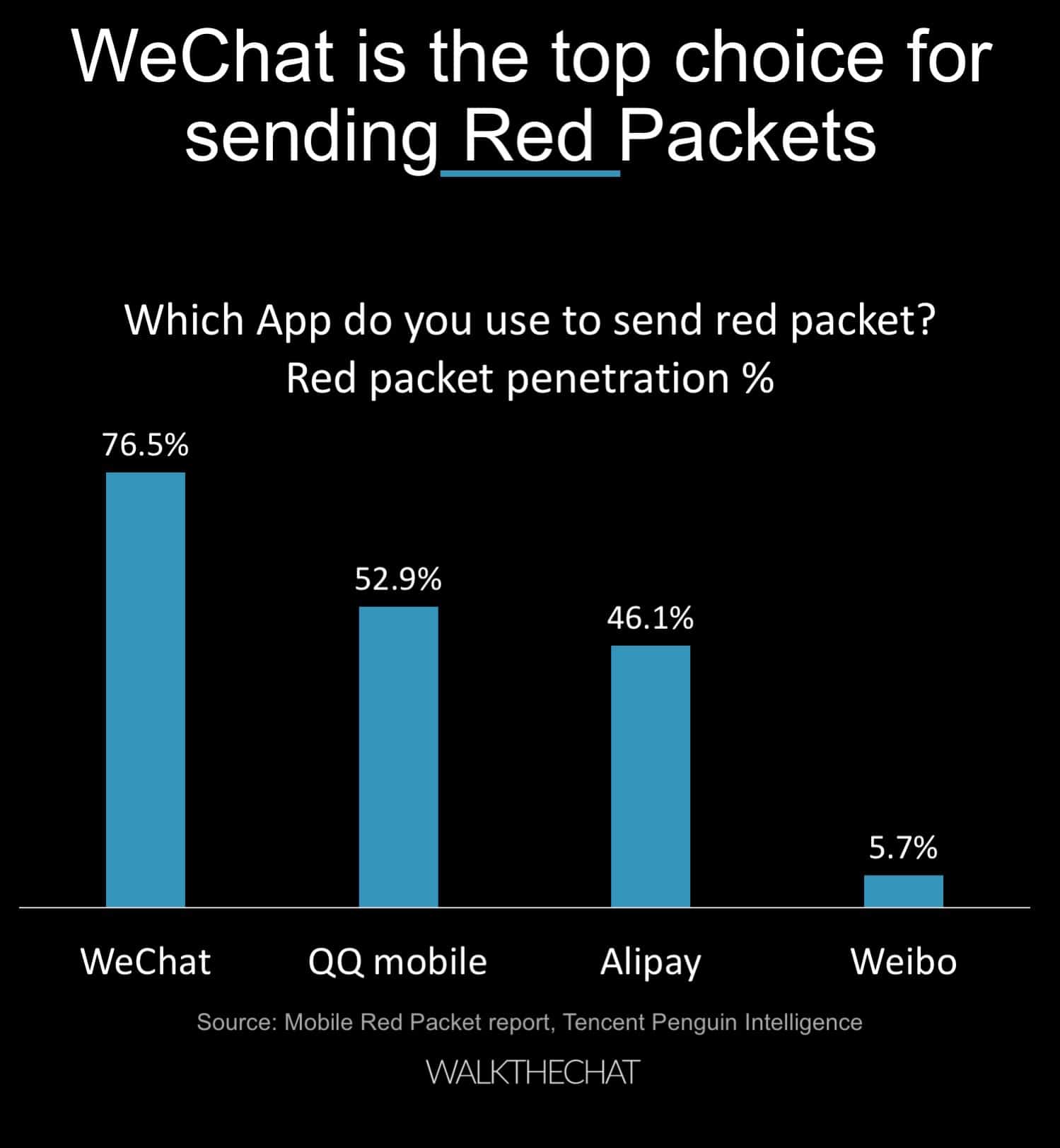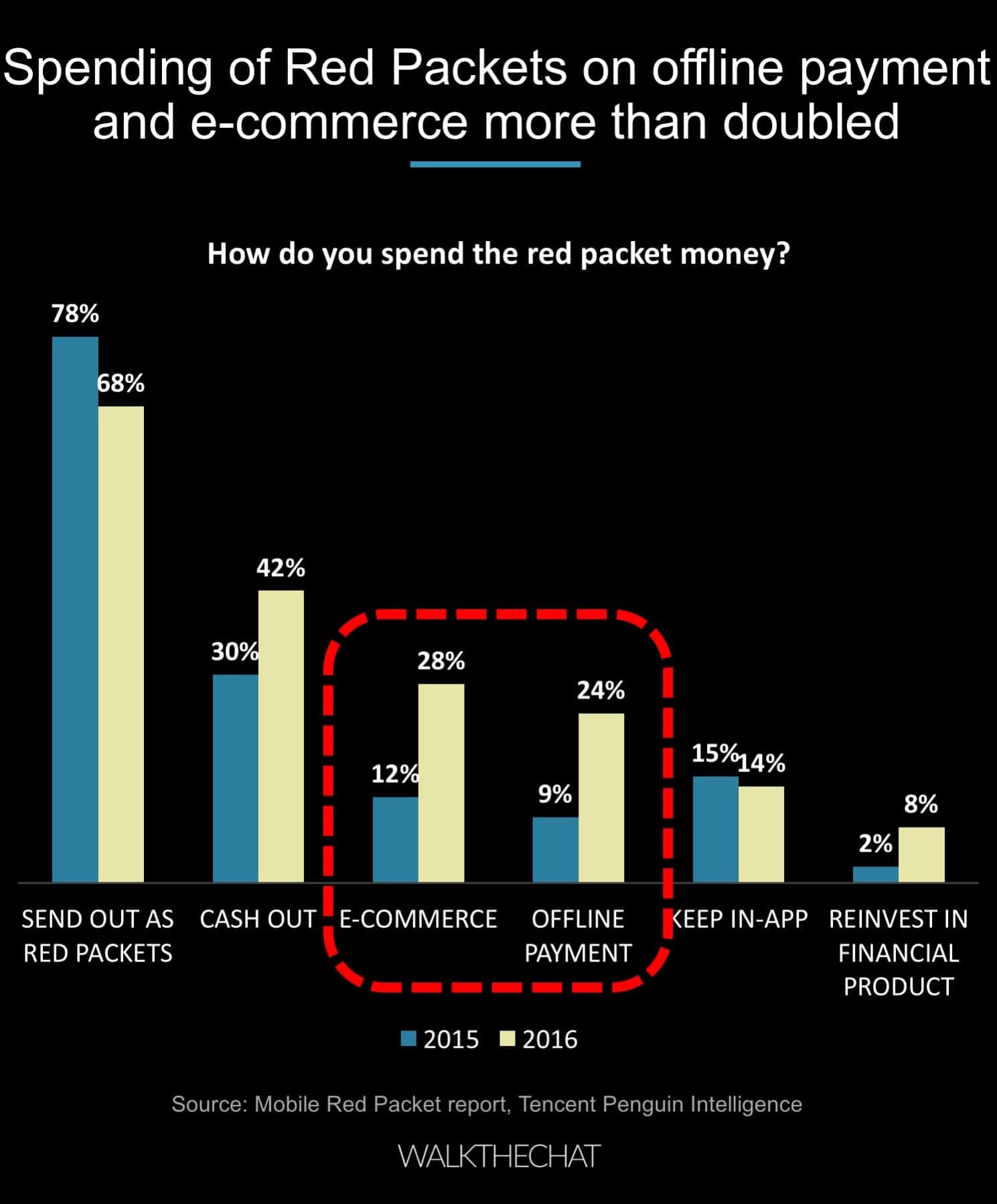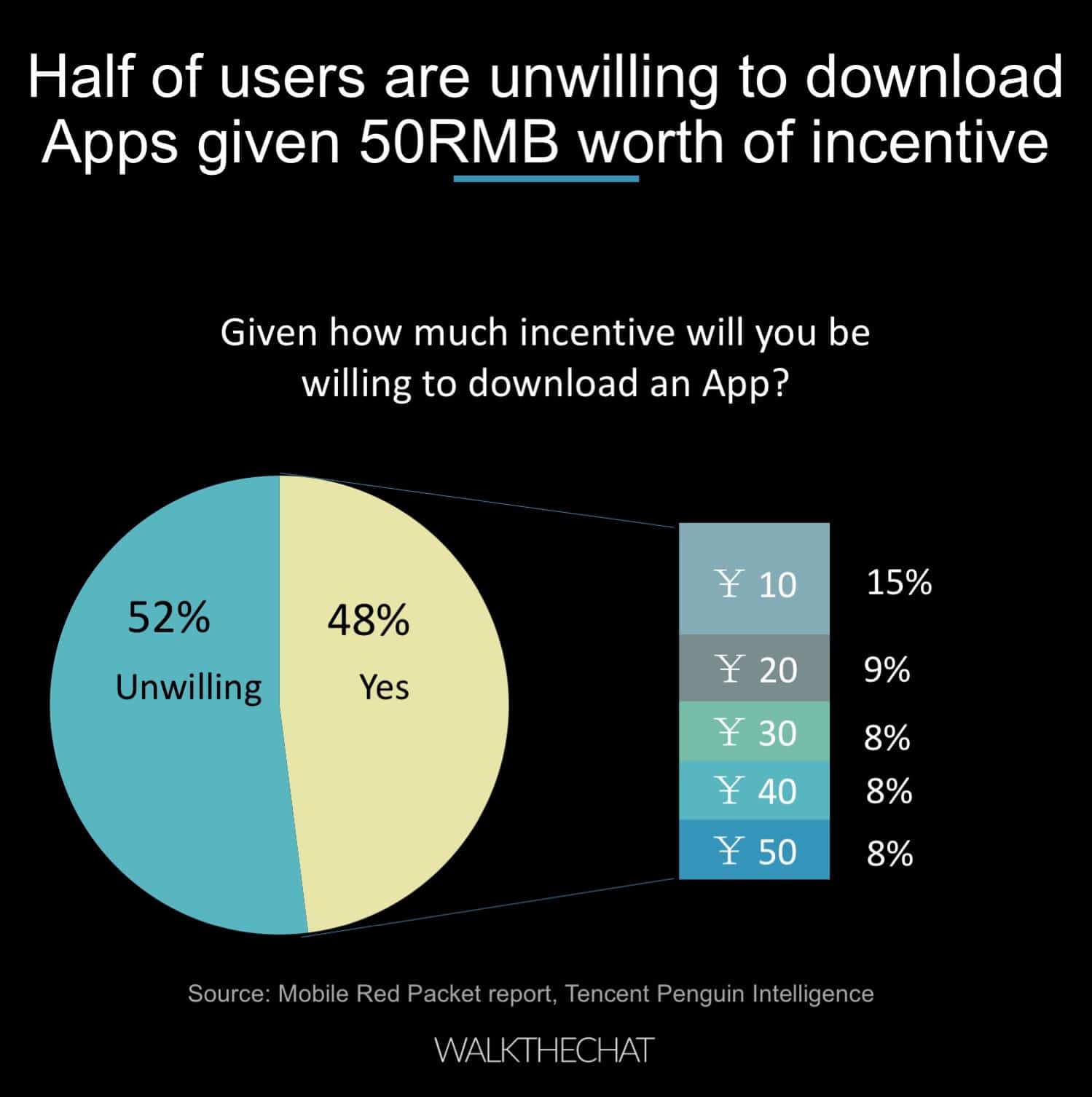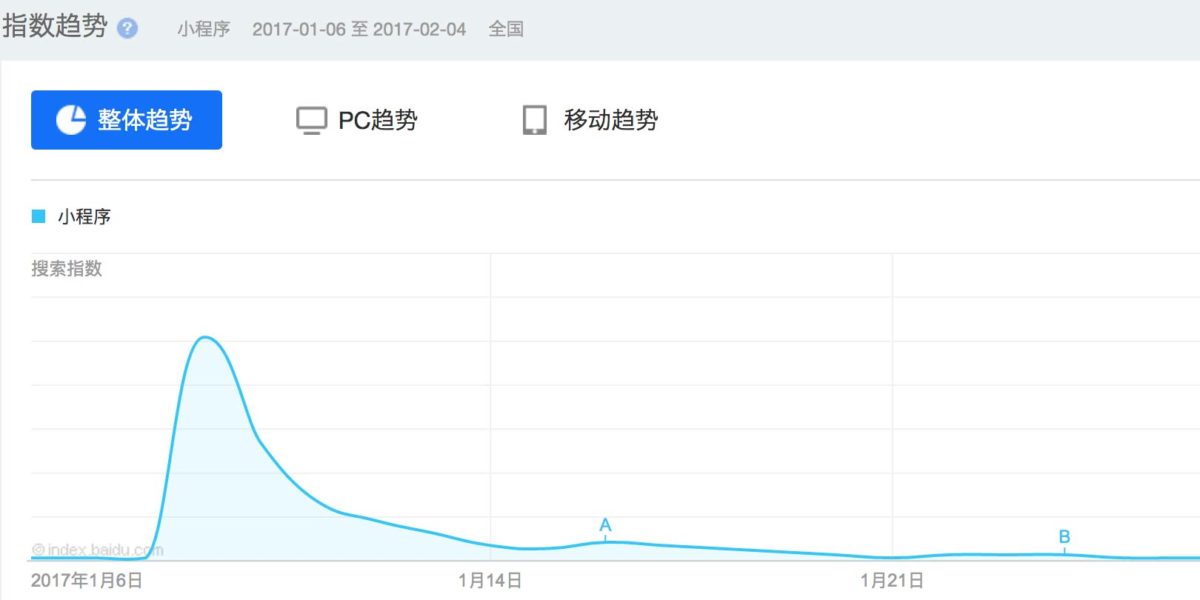This week, a set of news about WeChat and the digital ecosystem of China:
- Mini programs are already losing traction
- You can now send and receive gold on WeChat
- New data shows Alipay red packets get beaten by WeChat… and also by QQ!
WeChat Mini Programs losing traction
Mini Programs have been launched only a few weeks ago, on January 9th, but the buzz is already fading away. Below is the Baidu search index trend for Mini Programs.
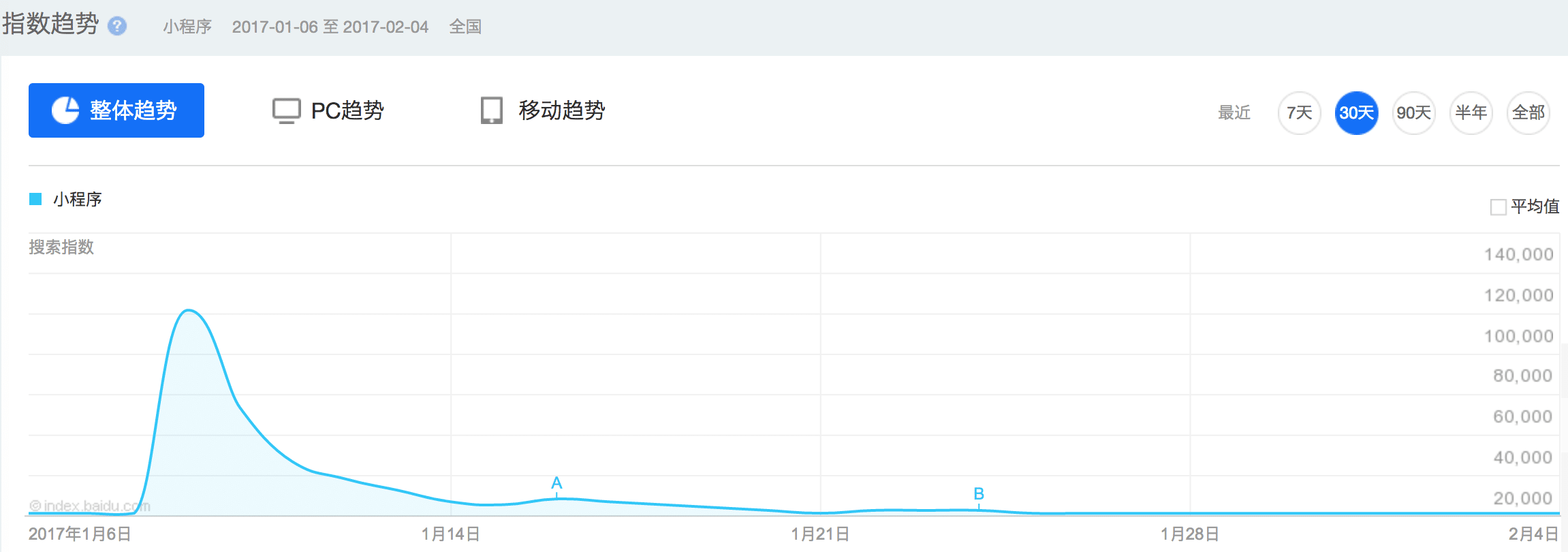
“My Calculator” is a Mini Program that helps users calculate home mortgages, after-tax salaries and currency conversion. It got 50,000 unique visitor on the launch day. During the following week, the numbers continuously dropped, and returning visitors make up only 20-30% of total visitors.
10 o’clock Reading is a podcast-focused WeChat account with 13 million followers. Its WeChat Mini Program only got 34k subscribers, and 4 digit listening per day.
Other Mini Programs like Dedao were delisted from the Mini program.
Without the traffic from a physical location, Mini Program can hardly replace native apps… or even their older siblings, the WeChat Official accounts.
WeChat enables “Gold packets”
The new-rich loves gold, and gift-giving. A new marketing campaign lets users share red packets that don’t contain money… but grams of gold.
This is a marketing campaign done by Tencent in collaboration with Industrial and Commercial Bank of China (ICBC). After following a Tencent Gold WeChat account (id: wx-gold), users can give between 0.001-1 gram of gold to friends.
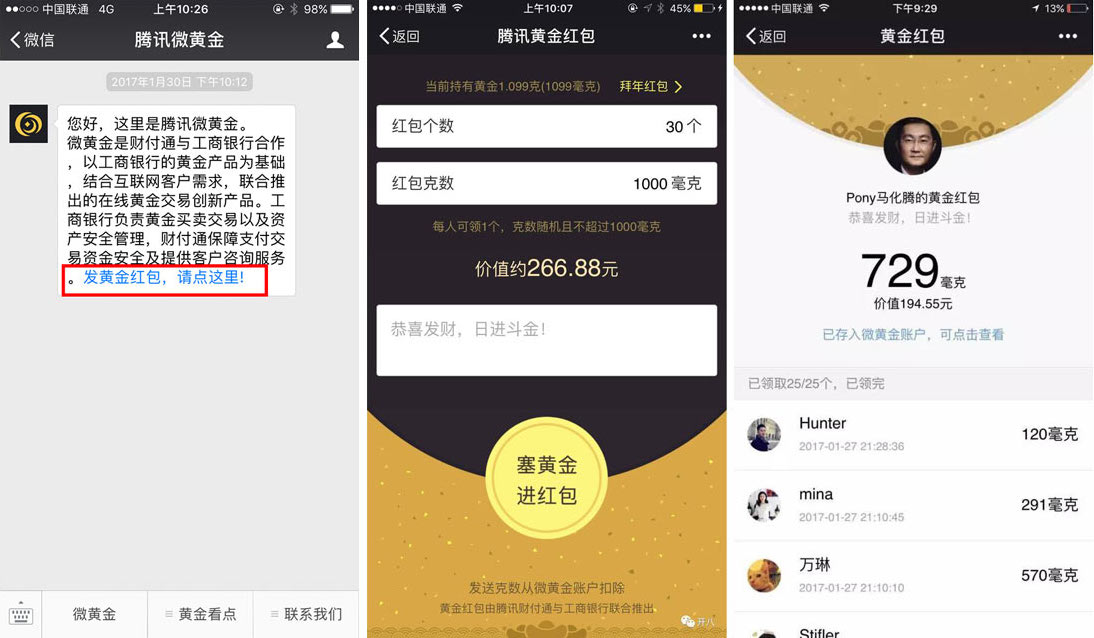
Today, only selected users can access this feature.
It’s a smart way to promote gold as a financial product for the banks, but not a worthwhile investment given the service fee of 5‰.
On the other hand, Alibaba also started a campaign for investing in gold. Users can invest at low as 1 RMB. The payment war is switching from low-value red packet transaction to financial products. That’s where the money is.
New WeChat Red Packet Data
Tencent Penguin Intelligence conducted a survey among 64,540 smart phone users on the topic of red packets.
